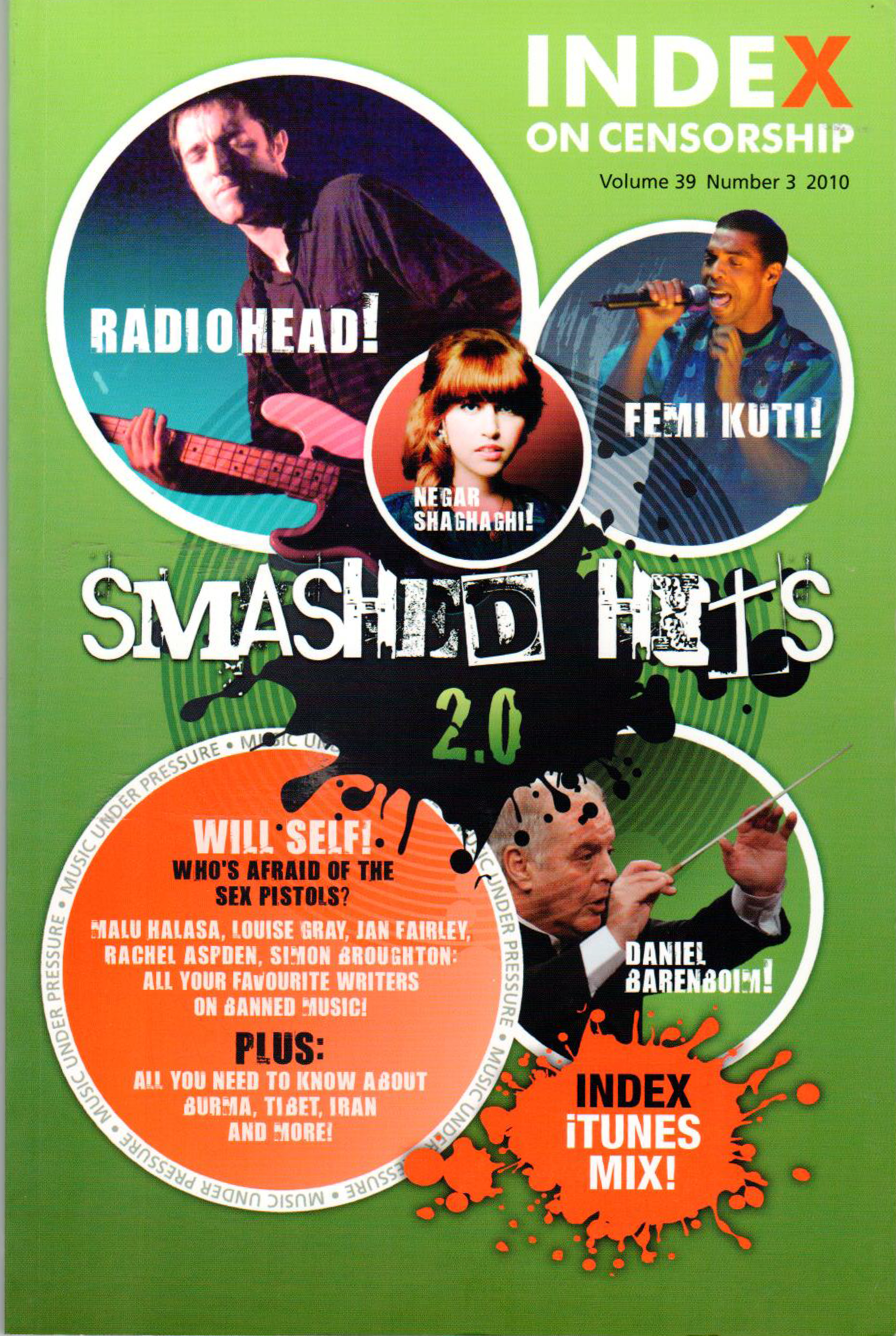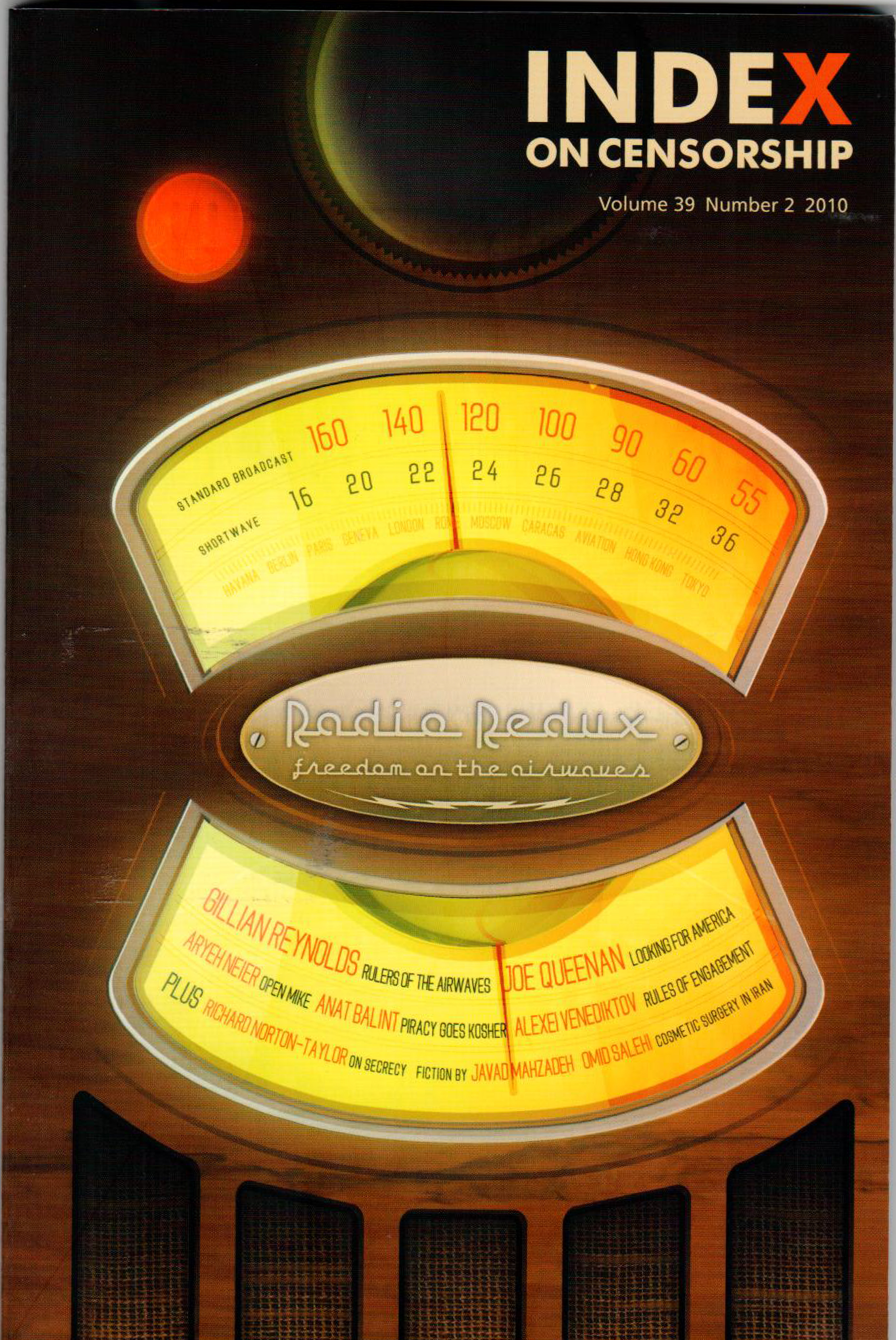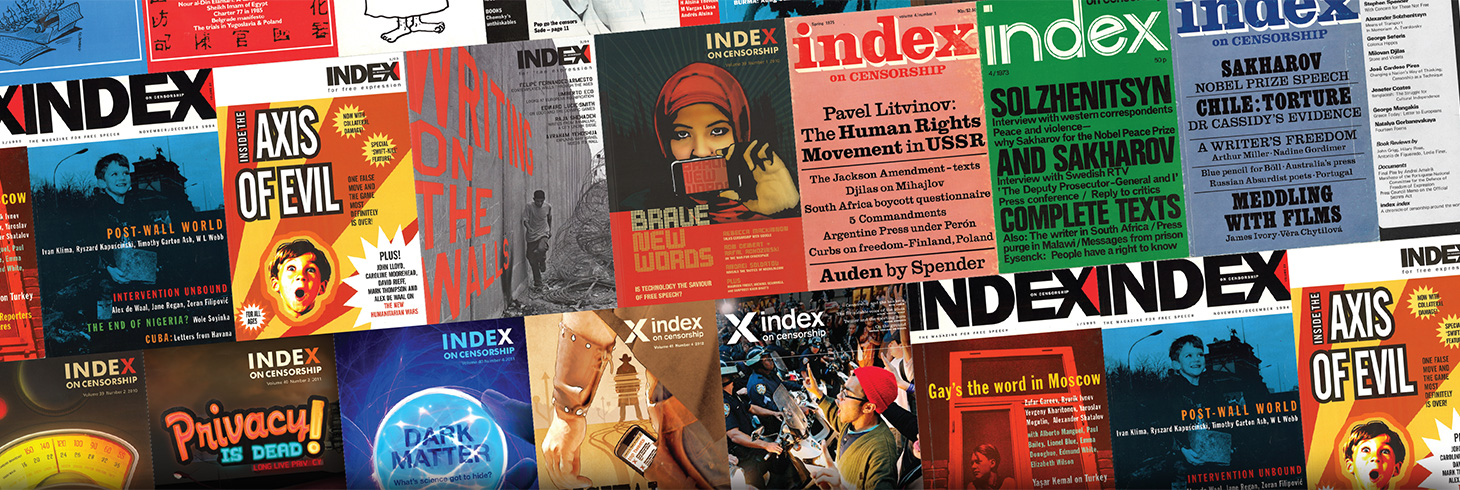In the summer of 1977 I was 15 years old and wore an old tropical linen jacket I’d bought in a charity shop for a quid. It wasn’t so much off-white as ruinous, and it matched the colour of my shoes --- winkle-pickers I’d painted myself using some...
CATEGORY: Magazine

Voice to the Voiceless
Cameroonian singer Lapiro de Mbanga gives an exclusive interview to Daniel Brown from prison on protest, politics and the art of satire

Bring music, bring life
In the new issue of Index on Censorship magazine, Daniel Barenboim tells Clemency Burton-Hill why music provides a model for living and governments continue to fear the power of its influence
Frank Kermode: Palaces of memory
Literary critic Frank Kermode died this week at the age of 90. Writing for Index on Censorship in 2001, he discussed memory and biography
PODCAST: Israeli settler radio—Piracy goes Kosher
With the launch of a radio station in the West Bank, settlers are winning legitimacy as well as influence. Padraig Reidy interviews with Israeli journalist Anat Balint on the subject of Israeli settler radio
Looking for America
Talk radio is the right-wing’s battleground for the soul of the USA, but Joe Queenan isn’t listening
Libel: Thai travails
Tesco has dropped its libel case against Thai columnist Kamol Kamoltrakul (pictured). But the libel laws in Thailand are still hostile to journalists, as Sinfah Tunsarawuth explained in Index on Censorship’s “Big Chill” issue
Aung San Suu Kyi: Freedom from fear
Burmese pro-democracy campaigner Aung San Suu Kyi marks her 65th birthday under house arrest today. Here, we republish an article she wrote in honour of her father Aung San, which first appeared in the January 1992 edition of Index on Censorship magazine.

Radio redux
From unsung heroes to shock jocks, Index looks at free speech on the airwaves
From the archive: Revolution at the crossroads
Index on Censorship contributor
Fred Halliday has died at the age of 64. Here, we republish a typically insightful Halliday article on the Islamic Republic of Iran from 2001
A quarterly journal set up in 1972, Index on Censorship magazine has published oppressed writers and refused to be silenced across hundreds of issues.
The brainchild of the poet Stephen Spender, and translator Michael Scammell, the magazine’s very first issue included a never-before-published poem, written while serving a sentence in a labour camp, by the Soviet dissident Aleksandr Solzhenitsyn, who went on to win a Nobel prize later that year.
The magazine continued to be a thorn in the side of Soviet censors, but its scope was far wider. From the beginning, Index declared its mission to stand up for free expression as a fundamental human right for people everywhere – it was particularly vocal in its coverage of the oppressive military regimes of southern Europe and Latin America but was also clear that freedom of expression was not only a problem in faraway dictatorships. The winter 1979 issue, for example, reported on a controversy in the United States in which the Public Broadcasting Service had heavily edited a documentary about racism in Britain and then gone to court attempting to prevent screenings of the original version. Learn more.

